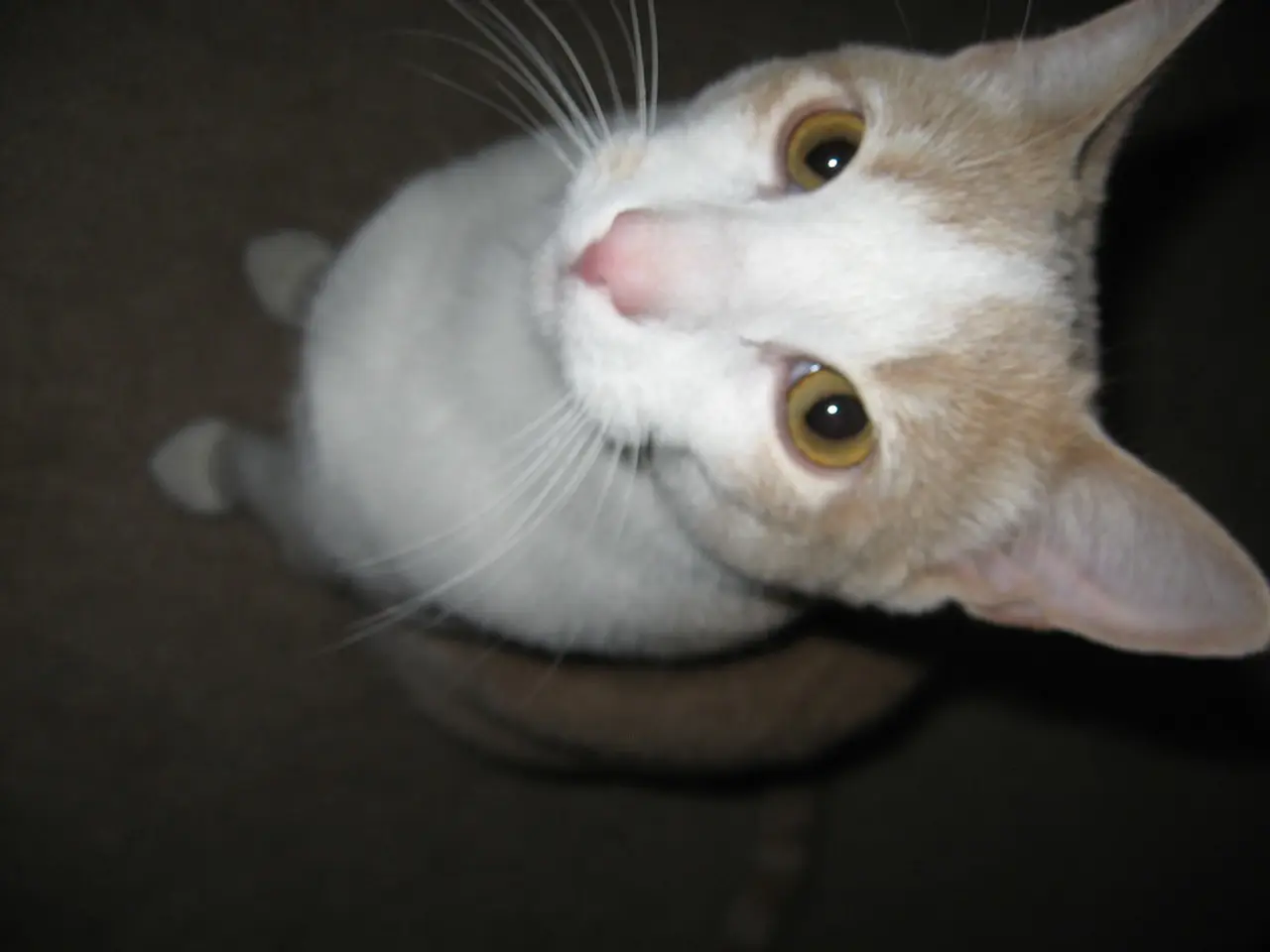Approximately how much does a typical domestic feline weigh?
Cats, as beloved pets, come in a variety of breeds, each with its own weight range. Here's a breakdown of the average weights for some common cat breeds:
- Somali cats: Males weigh between 3.5 and 5.0 kg, while females weigh between 2.5 and 4.0 kg.
- Persian cats: Males can weigh up to 10 kg, while females reach up to 8 kg.
- Exotic Shorthair cats: Males weigh 4 kg, and females 3 kg.
- Havana cats: Males weigh 3.5 kg, and females 2.7 kg.
- Burmese cats: Males weigh between 5 and 6 kg, and females 4-4.5 kg.
- Abyssinian cats: Males weigh between 3.5 and 5.0 kg, and females 2.5 and 4.0 kg.
- Russian Blue cats: Males weigh between 3.5 and 6.5 kg, and females 2.5 and 4.5 kg.
- Egyptian Mau cats: Males weigh 4 kg, and females 3 kg.
- British Shorthair cats: Males weigh between 4.1 and 7.7 kg, and females 3.2 and 5.4 kg.
- Siamese cats: Males weigh between 4.0 and 5.0 kg, and females 3.0 and 4.0 kg.
- American Shorthair cats: Males weigh between 3.5 and 4.5 kg, and females 3.0 and 4.5 kg.
- Snowshoe cats: Males weigh up to 5 kg, and females 3 kg.
- Ragdoll cats: Males weigh between 6.5 and 10 kg, and females 4.5 and 6.5 kg.
- Burmilla cats: Males weigh between 3.5 and 6.5 kg, and females 2.5 and 4.5 kg.
- Norwegian Forest Cat cats: Males weigh between 5 and 9.5 kg, and females 3.5 and 7 kg.
Males tend to weigh more than females across most breeds. However, it's important to note that the ideal weight can vary depending on size and bone structure. A healthy weight should generally be below 10 kg for most cats.
On the other hand, a weight of 2.5 kg or less in an adult cat is considered underweight. If your cat falls into this category, a vet visit is recommended to rule out any underlying illness.
Obesity in cats is often a sign of lack of exercise and psychological imbalance. Overweight cats should be put on diet foods with reduced calorie intake. Regular meals, ideally once in the morning and once in the evening, will help an overweight cat maintain its health. Exercise and stimulation are also crucial for overweight cats.
Outdoor cats are at a higher risk of picking up diseases that may not show symptoms other than weight loss. Indoor cats, on the other hand, are at a higher risk for parasites that can cause weight loss. Regular deworming is recommended, especially for indoor cats, to prevent weight loss due to parasites that can also affect humans.
As obligate carnivores, cats should have a high meat content in their food. Many cheap cat foods have too high a carbohydrate content, which promotes weight gain. Treats and snacks should be limited or avoided for overweight cats.
Lastly, it's important to remember that a normal house cat should weigh between 3 and 4.5 kg. Larger cat breeds can weigh significantly more, but it's always best to consult with a vet to ensure your cat is at a healthy weight.




